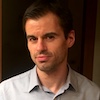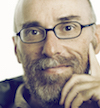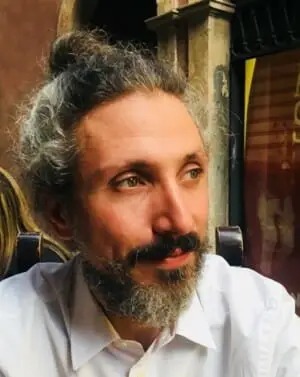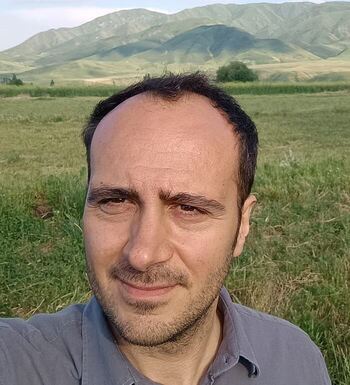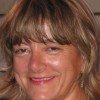Studying at the University of Verona
Here you can find information on the organisational aspects of the Programme, lecture timetables, learning activities and useful contact details for your time at the University, from enrolment to graduation.
Academic calendar
The academic calendar shows the deadlines and scheduled events that are relevant to students, teaching and technical-administrative staff of the University. Public holidays and University closures are also indicated. The academic year normally begins on 1 October each year and ends on 30 September of the following year.
Course calendar
The Academic Calendar sets out the degree programme lecture and exam timetables, as well as the relevant university closure dates..
| Period | From | To |
|---|---|---|
| Sem. 1A | Sep 24, 2018 | Nov 10, 2018 |
| Sem. 1B | Nov 19, 2018 | Jan 12, 2019 |
| Sem. 2A | Feb 18, 2019 | Mar 30, 2019 |
| Sem. 2B | Apr 8, 2019 | Jun 1, 2019 |
| Session | From | To |
|---|---|---|
| Sessione Invernale | Jan 14, 2019 | Feb 16, 2019 |
| Sessione Estiva (Gli esami sono sospesi durante la Sessione di laurea) | Jun 3, 2019 | Jul 27, 2019 |
| Sessione Autunnale | Aug 26, 2019 | Sep 21, 2019 |
| Session | From | To |
|---|---|---|
| Sessione Estiva | Jul 8, 2019 | Jul 13, 2019 |
| Sessione Autunnale | Nov 4, 2019 | Nov 9, 2019 |
| Sessione Invernale | Mar 30, 2020 | Apr 4, 2020 |
| Period | From | To |
|---|---|---|
| Festa di Ognissanti | Nov 1, 2018 | Nov 1, 2018 |
| Festa dell’Immacolata | Dec 8, 2018 | Dec 8, 2018 |
| Vacanze di Natale | Dec 22, 2018 | Jan 6, 2019 |
| Vacanze di Pasqua | Apr 19, 2019 | Apr 23, 2019 |
| Festa della liberazione | Apr 25, 2019 | Apr 25, 2019 |
| Festa del lavoro | May 1, 2019 | May 1, 2019 |
| Festa del Santo Patrono - S. Zeno | May 21, 2019 | May 21, 2019 |
| Festa della Repubblica | Jun 2, 2019 | Jun 2, 2019 |
| Vacanze Estive | Aug 12, 2019 | Aug 17, 2019 |
Exam calendar
Exam dates and rounds are managed by the relevant Humanistic Studies Teaching and Student Services Unit.
To view all the exam sessions available, please use the Exam dashboard on ESSE3.
If you forgot your login details or have problems logging in, please contact the relevant IT HelpDesk, or check the login details recovery web page.
Should you have any doubts or questions, please check the Enrollment FAQs
Academic staff
 francesco.bianchi@univr.it
francesco.bianchi@univr.it
 bonifacio@teologiaverona.it
bonifacio@teologiaverona.it
 evita.calabrese@univr.it
evita.calabrese@univr.it
 andrea.cavalletti@univr.it
andrea.cavalletti@univr.it
 francesco.lupi@univr.it
francesco.lupi@univr.it

Mastrocinque Attilio
 attilio.mastrocinque@univr.it
attilio.mastrocinque@univr.it
 +39 045802 8386
+39 045802 8386
 linda.napolitano@univr.it
linda.napolitano@univr.it
 pieralberto.porcedducilione@univr.it; pierre_pordd@yahoo.it
pieralberto.porcedducilione@univr.it; pierre_pordd@yahoo.it
 045 8028732
045 8028732
 nicola.turrini@univr.it
nicola.turrini@univr.it
 lucia.vantini@univr.it
lucia.vantini@univr.it
 mariarenata.zanchin@univr.it
mariarenata.zanchin@univr.it
Study Plan
The Study Plan includes all modules, teaching and learning activities that each student will need to undertake during their time at the University.
Please select your Study Plan based on your enrollment year.
1° Year
| Modules | Credits | TAF | SSD |
|---|
Other activities2° Year activated in the A.Y. 2019/2020
| Modules | Credits | TAF | SSD |
|---|
1 module to be chosen among the following1 module to be chosen among the following3 modules to be chosen among the following3° Year activated in the A.Y. 2020/2021
| Modules | Credits | TAF | SSD |
|---|
3 modules to be chosen among the following1 module to be chosen among the following| Modules | Credits | TAF | SSD |
|---|
Other activities| Modules | Credits | TAF | SSD |
|---|
1 module to be chosen among the following1 module to be chosen among the following3 modules to be chosen among the following| Modules | Credits | TAF | SSD |
|---|
3 modules to be chosen among the following1 module to be chosen among the following| Modules | Credits | TAF | SSD |
|---|
2 modules to be chosen among the following3 modules to be chosen among the followingLegend | Type of training activity (TTA)
TAF (Type of Educational Activity) All courses and activities are classified into different types of educational activities, indicated by a letter.
Philosophical Hermeneutics (2020/2021)
Teaching code
4S00985
Teacher
Coordinator
Credits
6
Language
Italian
Scientific Disciplinary Sector (SSD)
M-FIL/01 - THEORETICAL PHILOSOPHY
Period
Sem. 1A dal Sep 21, 2020 al Oct 31, 2020.
Learning outcomes
The principal aim of the course is to give an adequate understanding of what philosophical hermeneutics properly is. Hermeneutics is usually understood as the discipline and art of interpretation. This type of hermeneutics arises from the exegesis of sacred and humanistic texts, which follows the rediscovery of Greek civilization with the Italian Renaissance and the free reading of the Bible with the German Reformation. The theory of interpretation is a variety of philological and religious hermeneutics, it is a tool for understanding the written text and the dogmatic subjectivity. Instead, properly philosophical hermeneutics is not a theory of interpretation and has nothing to do with text and language. Philosophical hermeneutics was born in the twentieth century with Husserl - which defines phenomenology as a “hermeneutics of conscious life” – and with Heidegger, for whom the exercise of philosophy is a “hermeneutics of facticity”, i.e. the understanding existence has of itself. Such hermeneutics is not “interpretation” but “explication” and “unfolding” (Auslegung), i.e. spontaneous articulation of being, an event that precedes language and in which Being unfolds and participates in all possible ways of being.
At the end of the course, students will be able to follow the twisting paths of 20th century hermeneutics with greater awareness and agility, thus enhancing their knowledge of contemporary philosophical debate. They will have the capacity to autonomously comprehend texts and subjects addressed during the course, to employ a proper philosophical terminology, to communicate philosophical topics with specialists and non-specialists, and the ability to to continue studies at a MA level.
Program
THE VOID
The void is one of the many bogeymen of Western culture, especially of philosophical culture. "Horror vacui" is a very recurring expression in the history of art and of thought. We all have a little fear of emptiness, often because we naively identify emptiness with non-being, as if emptiness were a mask of nothingness. But this is not the case. On the contrary, emptiness is one of the most fruitful experiences we are given and the world would be truly unlivable if there were not always, even when we did not notice it, a measure of emptiness to keep it together.
We will try to understand what "void" means by reading two extraordinary texts that are situated on the threshold that unites-separates science and literature: "Eureka" by the American writer Edgar A. Poe and some passages of his ancient model, the "De rerum natura" by Lucretius. As a term of philosophical mediation, the collection of essays Althusser dedicated to materialism will help us. It is in fact the great tradition of Western materialism to have focused the notion of emptiness as best as possible and to teach us what use it can be made of.
| Author | Title | Publishing house | Year | ISBN | Notes |
|---|---|---|---|---|---|
| Edgar A. Poe | Eureka | Bompiani | 2001 | ||
| Lucrezio | La natura delle cose | edizione a scelta | 2020 | Libro I, vv. 1-49, 159-173, 271-297, 329-357, 417-448, 483-539, 551-583, 1008-1051 Libro II, vv. 62-141, 216-293, 398-443, 522-599, 1105-1174 Libro IV, vv. 26-109 Libro V, vv. 416-508, 621-631, 783-854 LIbro VI, vv. 921-997 | |
| Louis Althusser | Sul materialismo aleatorio | Unicopli | 2004 | "La corrente sotterranea del materialismo dell'incontro", "Ritratto di un filosofo materialista", pp. 55-115, 181-182 | |
| Tommaso Tuppini | Vortici. Forme dell'esperienza | Orthotes | 2020 |
Examination Methods
Exam is oral and evaluates the mastery of the topics and concepts contained in the books indicated in the bibliography. The questions evaluate the vocabulary, the critical-argumentative capacity, the ability to autonomously rework what has been learned.
Teaching materials e documents
-
 E.A. Poe, Rivelazione mesmerica
(pdf, it, 226 KB, 16/10/20)
E.A. Poe, Rivelazione mesmerica
(pdf, it, 226 KB, 16/10/20)
-
 Rig-Veda
(pdf, it, 53 KB, 16/10/20)
Rig-Veda
(pdf, it, 53 KB, 16/10/20)
Type D and Type F activities
Modules not yet included
Career prospects
Module/Programme news
News for students
There you will find information, resources and services useful during your time at the University (Student’s exam record, your study plan on ESSE3, Distance Learning courses, university email account, office forms, administrative procedures, etc.). You can log into MyUnivr with your GIA login details: only in this way will you be able to receive notification of all the notices from your teachers and your secretariat via email and also via the Univr app.
Student mentoring
Linguistic training CLA
Gestione carriere
Practical information for students
Documents
| Title | Info File |
|---|---|
|
|
pdf, it, 325 KB, 16/07/24 |
|
|
pdf, it, 212 KB, 02/05/23 |
|
|
pdf, it, 131 KB, 02/05/23 |
Graduation
Documents
| Title | Info File |
|---|---|
|
|
pdf, it, 109 KB, 12/07/24 |
|
|
pdf, it, 112 KB, 14/05/24 |












